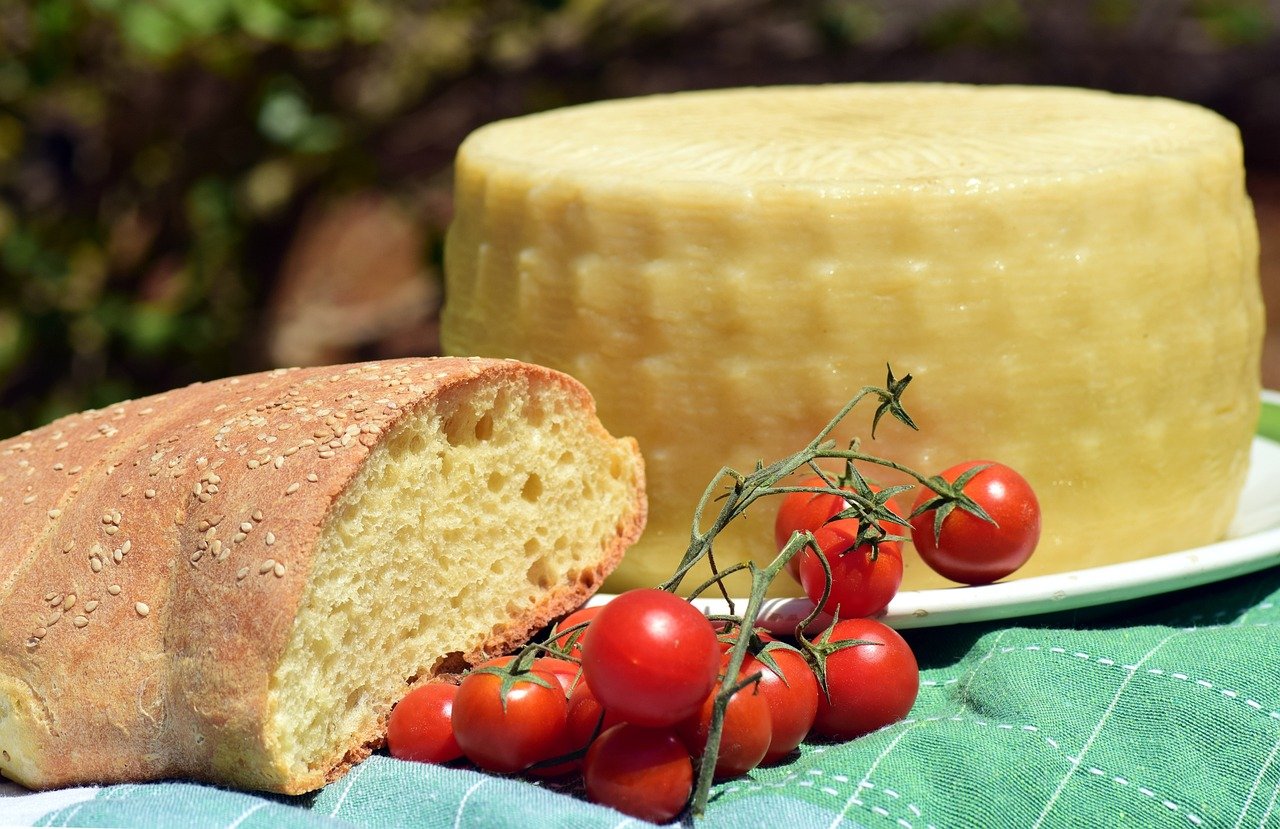What if you could enjoy cheese while still adhering to a healthy lifestyle? The Mediterranean diet is not only praised for its heart-healthy benefits, but it also includes a variety of delicious cheeses that you can savor. Let’s find out which types of cheese are allowed and how they can complement your meals.

Understanding the Mediterranean Diet
To fully appreciate the types of cheese you can include, it’s important to understand what the Mediterranean diet is all about. This eating pattern is inspired by the traditional dietary habits of countries bordering the Mediterranean Sea, such as Greece, Italy, and Spain.
Core Principles of the Mediterranean Diet
The Mediterranean diet emphasizes whole, minimally processed foods. Its foundation typically includes:
- Fruits and Vegetables: These should be consumed in abundance, providing essential vitamins, minerals, and fiber.
- Whole Grains: Whole grains like brown rice, quinoa, and whole grain bread are the staples.
- Healthy Fats: Olive oil is the primary source of fat, along with nuts and seeds.
- Lean Proteins: Fish and poultry are favored over red meat, with an emphasis on legumes and beans.
- Dairy: Moderate amounts of dairy, particularly yogurt and cheese, are included.
By incorporating cheese mindfully into your meals, you can enjoy its flavors while still following the Mediterranean eating pattern.
The Role of Cheese in the Mediterranean Diet
Cheese plays a unique role in the Mediterranean diet. It offers a rich source of protein and calcium while also enhancing the flavors of various dishes. However, not all cheeses are created equal, and some types align better with this dietary approach than others.
Nutritional Benefits of Cheese
Cheese can provide several health benefits when consumed in moderation:
- Protein Source: Cheese is a great source of protein, which is essential for muscle repair and growth.
- Calcium-Rich: A crucial component for bone health, calcium found in cheese helps maintain strong bones.
- Probiotics: Some cheeses contain live cultures that can aid digestion.
Before you pile on the cheese, let’s identify which varieties are the best fit for your Mediterranean diet.
Types of Cheese Allowed on the Mediterranean Diet
Understanding which types of cheese you can enjoy is key to managing your diet while indulging in creamy delights. Below is a breakdown of various cheeses commonly included in this eating style.
Feta Cheese
Feta is a staple in many Mediterranean dishes, particularly in Greek cuisine.
- Flavor Profile: It has a tangy and slightly salty flavor.
- Nutritional Value: Feta is lower in calories and fat compared to many other cheeses. A one-ounce serving contains about 75 calories and 6 grams of fat.
- Uses: Crumble it onto salads, mix it into pasta dishes, or use it in savory pastries.
Goat Cheese
Goat cheese is another favorite that fits perfectly within the Mediterranean framework.
- Flavor Profile: Its flavor can range from mild and creamy to strong and tangy, depending on its age.
- Nutritional Value: Typically lower in fat and calories compared to cow’s milk cheese, it also tends to be easier to digest for some people.
- Uses: Spread it on whole-grain crackers, sprinkle it on roasted vegetables, or combine it in dips.
Parmesan Cheese
Parmesan brings a nutty flavor to dishes and is often used to enhance the taste of pasta and salads.
- Flavor Profile: Rich, hard, and salty, it adds depth to a variety of dishes.
- Nutritional Value: Parmesan is high in protein and calcium, providing about 110 calories and 7 grams of protein per ounce.
- Uses: Grate it over pasta, salads, or use it in soups for an added kick.
Pecorino Romano
This nutty sheep’s milk cheese is widely used in Italian cooking and adds a unique flavor.
- Flavor Profile: Sharp, salty, and slightly tangy, Pecorino Romano can enhance many recipes.
- Nutritional Value: Similar to Parmesan, it’s packed with calcium and protein, with about 110 calories per ounce.
- Uses: It’s frequently used for grating over pasta, adding to sauces, or as a table cheese.
Ricotta Cheese
Ricotta is a versatile cheese that’s often used in both sweet and savory dishes.
- Flavor Profile: Mild and slightly sweet, it has a creamy texture.
- Nutritional Value: While slightly higher in calories (around 300 per cup), ricotta is rich in protein and calcium.
- Uses: Incorporate it in lasagna, spread on toast, or mix with fruit for a healthy dessert.
Halloumi Cheese
Originating from Cyprus, Halloumi is a unique cheese that can be enjoyed grilled or fried.
- Flavor Profile: Salty and slightly tangy, it has a chewy texture.
- Nutritional Value: Halloumi is higher in calories, averaging about 320 calories per 100 grams, but provides protein and calcium.
- Uses: Grill it and add it to salads, include it in wraps, or serve it as an appetizer.
Cheese to Enjoy in Moderation
While many cheeses are beneficial to your Mediterranean diet, some should be enjoyed more sparingly due to their higher fat and calorie content.
Cream Cheese
Cream cheese is delicious but richer in fat, so it’s good to keep portions small.
- Flavor Profile: Creamy and mildly tangy.
- Nutritional Value: About 100 calories and 10 grams of fat per ounce.
- Uses: Use it in spreads or desserts but consider lighter alternatives for daily consumption.
Blue Cheese
Blue cheese has a distinct flavor that can be an acquired taste for many.
- Flavor Profile: Strong and pungent, adding an intriguing depth to dishes.
- Nutritional Value: About 100 calories and 8 grams of fat per ounce.
- Uses: Use it sparingly as a salad topping or in dips to avoid excessive calories.

How to Incorporate Cheese into Your Mediterranean Diet
Adding cheese to your meals doesn’t have to be complicated. Here are some simple tips to help you include cheese while respecting the principles of the Mediterranean diet.
Pairing Cheese with Other Foods
Cheese pairs wonderfully with a variety of foods that enhance its flavors.
- Fruits: Fresh fruits like figs, grapes, and pears complement most cheeses beautifully.
- Nuts: Almonds, walnuts, and pistachios add crunch and a satisfying textural contrast.
- Vegetables: Roasted or grilled vegetables can provide a wholesome base for many cheese dishes.
Using Cheese in Cooking
Cheese can be an essential ingredient to elevate your meals.
- Salads: Crumble feta or shave Parmesan over your mixed greens for added flavor and nutrition.
- Pasta Dishes: Incorporate any of the mentioned cheeses into your pasta for a rich and savory flavor.
- Dips: Blend goat cheese with herbs and olive oil for a delightful spread or dip.
Tips for Selecting Cheese
Choosing the right cheese can be daunting with so many options available. Here are some pointers to help you make better choices.
Read Labels
When picking cheese, always check the nutrition labels to pay attention to:
- Serving Size: Keep track of how much you’re consuming.
- Ingredients: Look for cheeses made with simple, natural ingredients.
Opt for Quality
High-quality cheese, though sometimes more expensive, tends to be more flavorful and satisfying. A little goes a long way, meaning you can enjoy it in moderation.
Buy from Local Producers
When possible, source cheese from local dairies or farmers’ markets. This not only supports your community but often provides fresher and more flavorful options.

Mindful Cheese Consumption
Cheese can be part of a balanced Mediterranean diet, but moderation is key. Here are some strategies for mindful cheese consumption:
Portion Control
Stick to recommended serving sizes. A typical serving of cheese ranges from 1 to 2 ounces. Using measuring tools can help you gauge the right amount.
Variety is Key
Try different cheeses throughout the week to avoid getting bored and to benefit from various nutritional properties.
Balance with Other Foods
Make sure to balance cheese consumption with plenty of fruits, vegetables, and whole grains to maintain a well-rounded diet.
Delicious Mediterranean Cheese Recipes
If you’re looking for inspiration, here are a few easy recipes that incorporate Mediterranean cheeses.
Greek Salad with Feta
This classic salad is refreshing, simple, and incredibly easy to make.
- Ingredients: Cherry tomatoes, cucumber, red onion, olives, feta cheese, olive oil, lemon, oregano.
- Instructions: Chop all ingredients, toss them together with olive oil and lemon juice, and sprinkle feta on top.
Roasted Vegetable and Goat Cheese Wrap
Perfect for a quick lunch or dinner!
- Ingredients: Whole grain wrap, assorted roasted vegetables (like bell peppers and zucchini), goat cheese, spinach.
- Instructions: Layer roasted vegetables, goat cheese, and spinach onto the wrap, roll tightly, and enjoy.
Creamy Ricotta and Spinach Pasta
This dish is comfort food at its finest, combining creamy ricotta with nutritious spinach.
- Ingredients: Whole grain pasta, ricotta cheese, fresh spinach, garlic, olive oil, salt, and pepper.
- Instructions: Cook pasta, sauté garlic and spinach in olive oil, mix in the ricotta, and combine with the drained pasta.

Frequently Asked Questions
You may still have some questions about including cheese in your Mediterranean diet. Here are a few common queries.
Can I eat any cheese on the Mediterranean diet?
While many cheeses are acceptable, it’s best to choose those that are lower in fat and calories, like feta and goat cheese, and enjoy harder cheeses in moderation.
Is cheese good for weight loss?
Cheese can fit into a weight-loss plan when consumed in moderation and balanced with other wholesome foods. Focus on portion sizes and choose cheeses wisely.
How often should I include cheese in my meals?
Incorporate cheese 2-3 times a week as part of balanced meals, pairing it with plenty of fruits, vegetables, and whole grains for a comprehensive diet.
In summary, your journey into the world of cheese on the Mediterranean diet can be flavorful and satisfying. By choosing wisely and enjoying in moderation, you can easily include these delightful cheeses in your healthy lifestyle. Embrace the diversity and richness of flavors that cheese brings and relish the positive impact of the Mediterranean diet on your health.